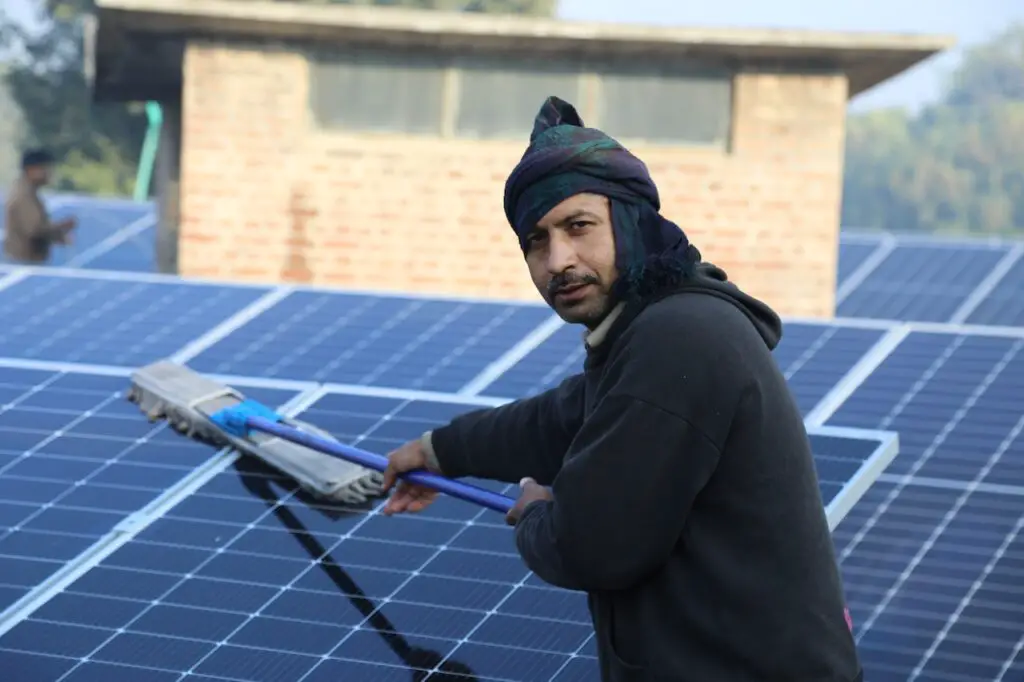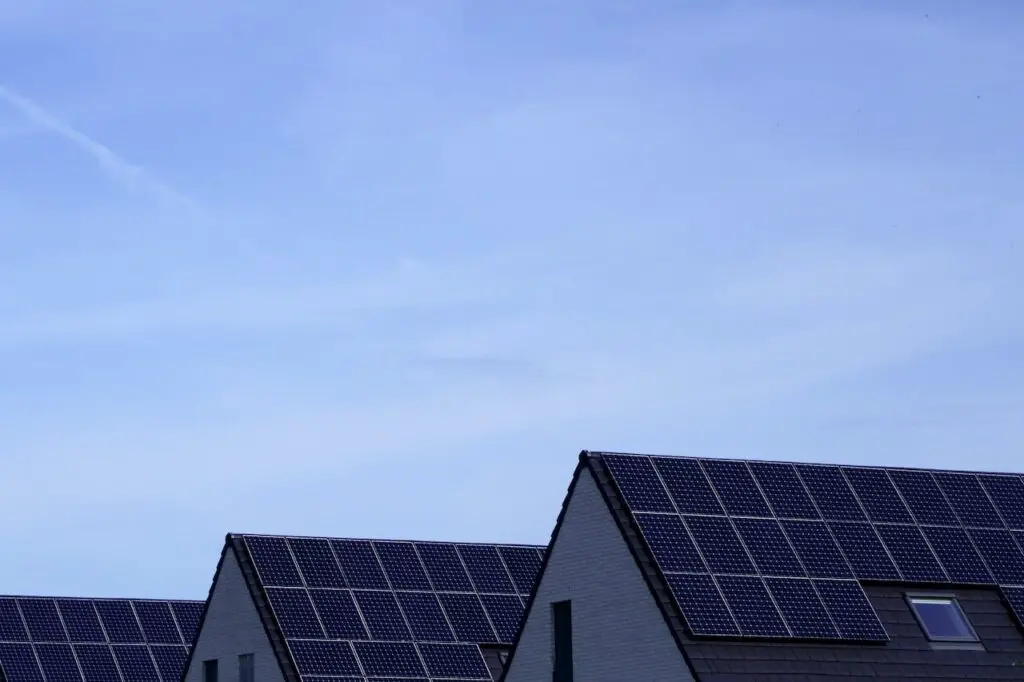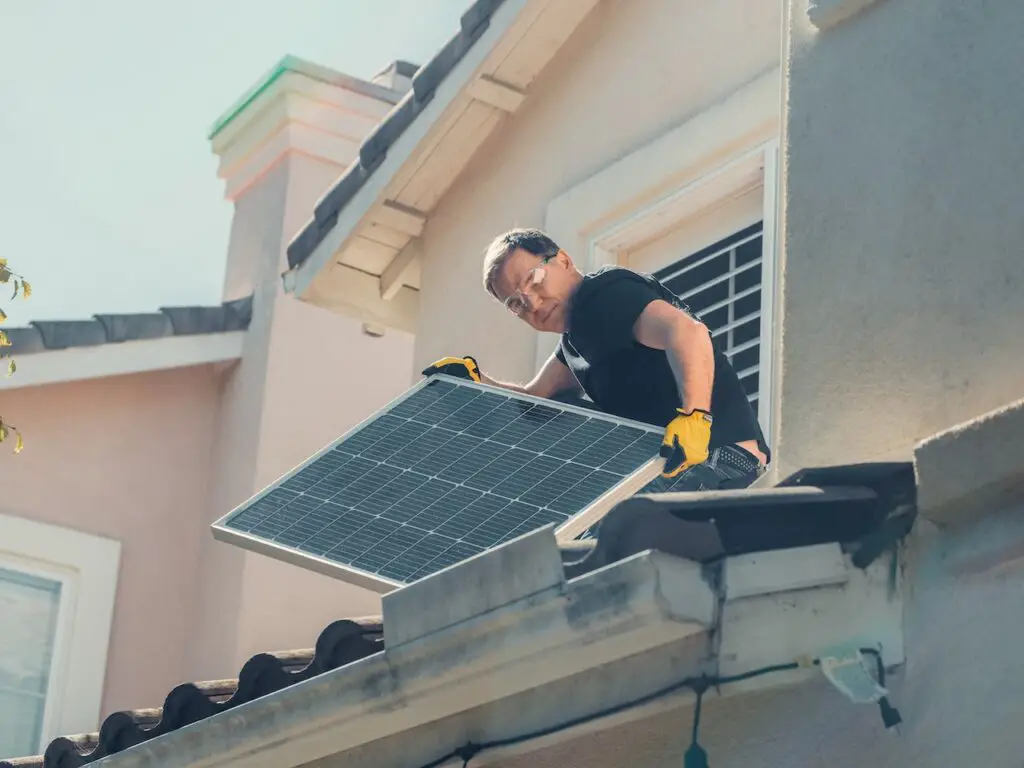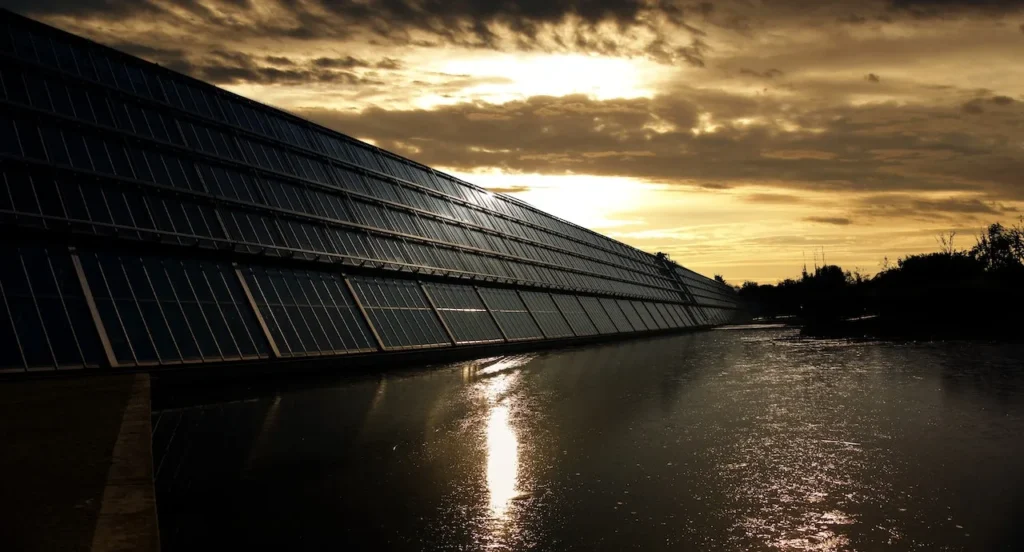When you invest in solar panels, you expect them to provide clean energy for your home or business for years to come. However, over time, dirt, dust, bird droppings, and other debris can accumulate on the surface of the panels, reducing their efficiency and cutting into your energy savings. That’s why it’s important to keep your solar panels clean.
Regular cleaning can help ensure that your solar panels are operating at peak efficiency, maximizing the amount of energy they generate and ultimately saving you money on your electricity bills. While it may seem like a hassle to clean your solar panels, it’s a relatively simple process that can be done with just a few basic tools and some elbow grease.
In this article, we’ll explore the reasons why it’s important to keep your solar panels clean, how to tell when they need cleaning, and the best methods for cleaning them safely and effectively. Whether you’re a new solar panel owner or you’ve had your panels for years, this guide will provide you with the information you need to keep your investment in top condition and ensure that you’re getting the most out of your solar energy system.

The Importance of Clean Solar Panels
Solar panels are an investment that requires regular maintenance to ensure optimal performance. The accumulation of dirt, dust, and debris can significantly reduce the efficiency of solar panels, leading to decreased energy production, a shorter lifespan, and an unappealing appearance.
Increased Energy Production
Dirty solar panels can reduce energy production by up to 25%. The accumulation of dust and debris on the surface of the panels can block sunlight from reaching the photovoltaic cells, limiting the amount of electricity they generate. By regularly cleaning solar panels, homeowners can ensure that their panels are operating at maximum efficiency and producing the most energy possible.
Extended Lifespan of Panels
Clean solar panels can last longer than dirty ones. The buildup of dirt and debris on the panels can cause scratches and other damage to the surface, which can lead to premature wear and tear. Regular cleaning can help prevent damage to the panels and extend their lifespan, saving homeowners money in the long run.
Improved Aesthetics
Clean solar panels not only function better but also look better. Dirty solar panels can be an eyesore and detract from the overall appearance of a home. Regular cleaning can help maintain the aesthetic appeal of solar panels, ensuring that they blend in seamlessly with the rest of the home’s exterior.
When to Clean Solar Panels
While solar panels are designed to be low maintenance, they still require regular cleaning to perform at their best. Over time, dust, dirt, and other debris can accumulate on the surface of the panels, reducing their efficiency and output.
Frequency of Cleaning
The frequency of cleaning solar panels depends on several factors, including the location of the panels, the weather conditions, and the amount of dust and debris in the area. In general, solar panels should be cleaned at least once or twice a year, but more frequent cleaning may be necessary in certain situations.
If the solar panels are located in an area with high levels of dust and debris, such as near a busy road or construction site, they may need to be cleaned more often. Similarly, if the panels are installed in an area with frequent rain or snow, they may require less frequent cleaning as the precipitation can help to wash away debris.
Environmental Factors
Environmental factors can also impact the frequency of cleaning solar panels. For example, if the panels are located in an area with high levels of air pollution, such as near a factory or power plant, they may need to be cleaned more often to remove the buildup of pollutants.
Similarly, if the panels are exposed to high levels of bird droppings or tree sap, they may require more frequent cleaning to prevent damage to the panels. In some cases, it may be necessary to install bird deterrents or prune nearby trees to reduce the amount of debris that accumulates on the panels.
How to Clean Solar Panels
Materials Needed
Before starting the cleaning process, gather all the necessary materials. All you need is:
- Clean water
- A soft scrubber or sponge
- A squeegee
- Cloth-covered sponge or soft plastic brush
Cleaning Methods
The cleaning process is very simple and doesn’t require any special skills or tools. Follow these steps:
- Turn off the solar panel system to avoid electrical shock.
- Use a soft scrubber or sponge to gently wash the surface of the panels.
- Rinse the panels with clean water to remove all traces of soap.
- Squeegee the panels dry.
Safety Precautions
While cleaning solar panels is generally safe, it’s important to take some safety precautions:
- Do not use metal objects, abrasive products or detergents as they can scratch the panels and affect efficiency.
- Do not clean the panels when they are hot as the water can evaporate quickly and leave behind mineral deposits.
- Do not use high-pressure water to clean the panels as it can damage the panels and void the warranty.
- Do not walk on the panels or use any sharp objects on them as they can crack or break.
Conclusion
Regular cleaning of solar panels is important to ensure that they are performing at their maximum efficiency. While the amount of cleaning required may vary depending on the location and angle of the panels, studies have shown that panels that are properly maintained can perform up to 3.5% more efficiently.
Although normal debris such as dust, dirt, and pollen have a minimal effect on efficiency, panels that are not cleaned properly can lose up to 30% efficiency. This can result in a significant loss of energy production and increased costs for the homeowner.
While rain can help to wash away some of the debris on panels, it is not sufficient for proper maintenance. Homeowners should consider cleaning their solar panels at least once or twice a year, depending on their location and the amount of debris that accumulates on the panels.
Overall, regular cleaning of solar panels is a simple and effective way to ensure that they are performing at their best and maximizing energy production. By following best practices and proper maintenance, homeowners can save money and reduce their carbon footprint.




